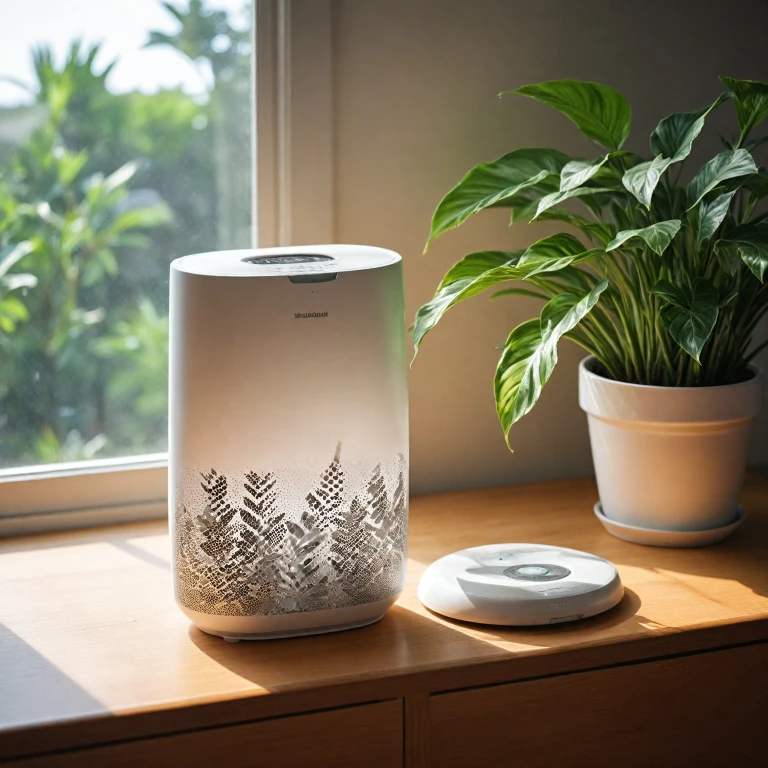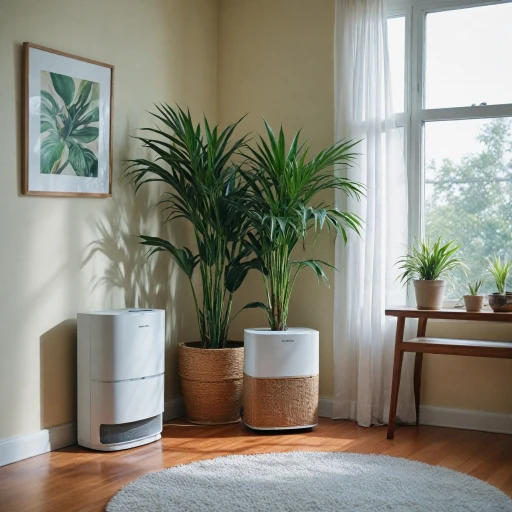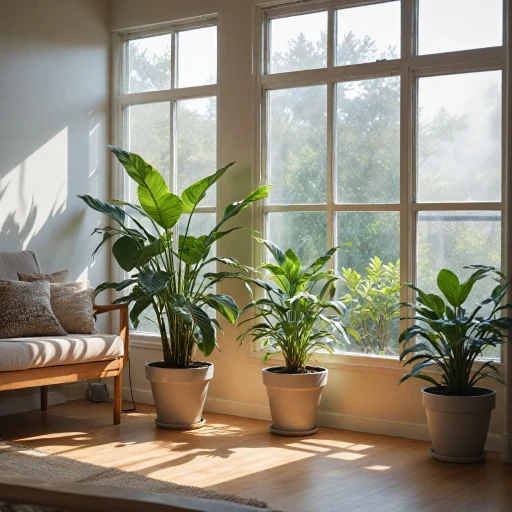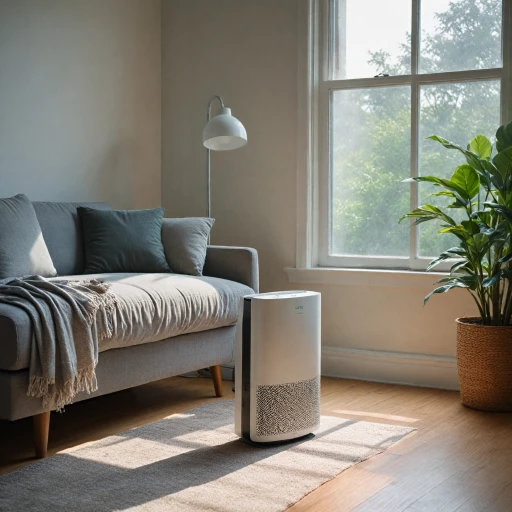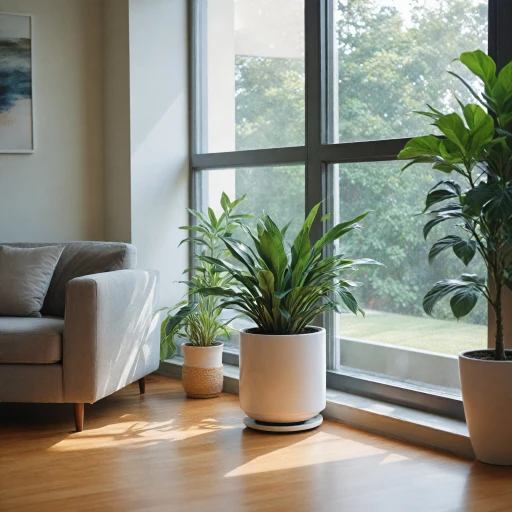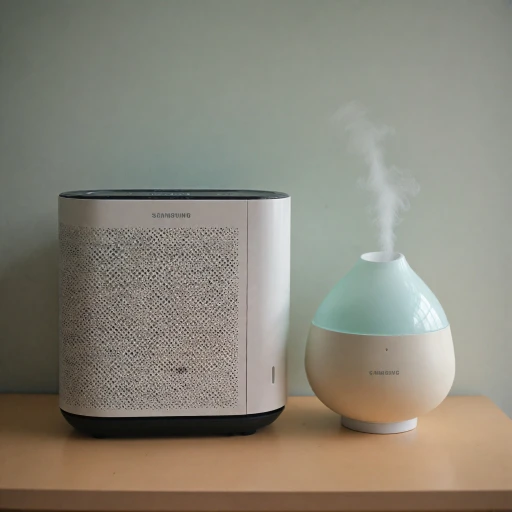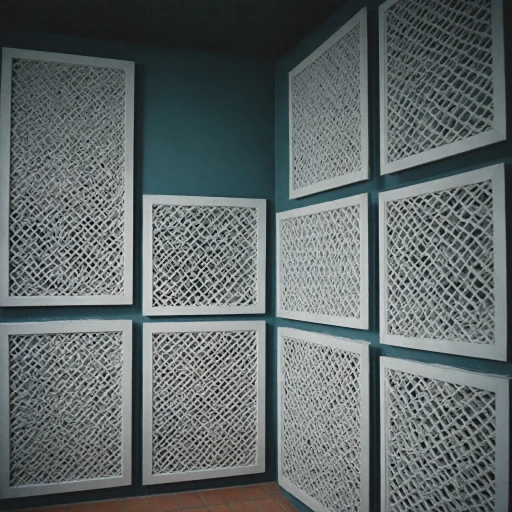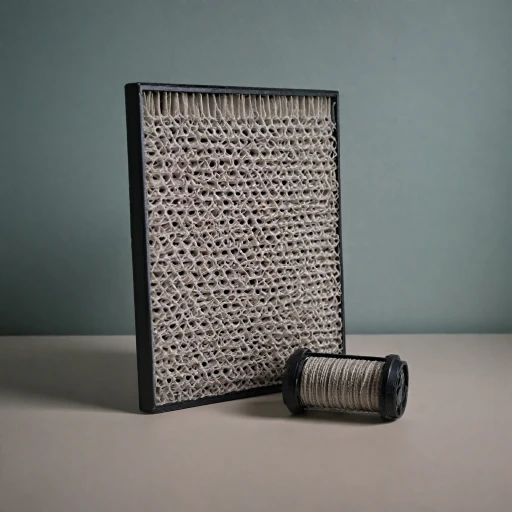The Role of Filters in Air Purifiers
Filters: The Heart of Air Purifiers
At the core of every effective air purifier lies a crucial component: the filter. These filters are responsible for cleansing the air by trapping pollutants and ensuring the air you breathe is as pure as possible. Diverse in their design and functionality, filters are tailored to target specific types of airborne contaminants, such as allergens, particles, and odors.
The True HEPA filters are particularly renowned for their efficiency in trapping 99.97% of particles as small as 0.3 microns, including dust, pollen, and mold spores. In addition to HEPA, activated carbon filters are often used to effectively reduce odors and gaseous pollutants.
It’s important to regularly maintain your air purifier’s filter to ensure optimal performance and longevity. Neglecting this maintenance can lead to reduced air quality and diminished efficiency of the unit. If you are unsure about when to replace your filter, you may benefit from understanding the importance of regularly cleaning your filters.
As with any essential home appliance, understanding the role of filters in air purifiers can guide you in selecting the right model, whether it’s a Levoit Core Mini, or a full-sized unit. Evaluating filter types and their benefits is essential for those seeking clean, fresh air in their homes.
Signs That Your Air Purifier Filter Needs Replacement
Indicators Your Air Purifier Is Due for a Filter Change
Maintaining optimal performance of your air purifier relies heavily on timely filter replacement. Knowing when it's time to swap out your filter is crucial for keeping the air in your home fresh and clean. Here are some telltale signs that indicate your air purifier filter needs replacement:
- Reduced Airflow: If the airflow from your air purifier seems weaker than usual, it may be a sign that the filter is clogged. As the filter collects dust, debris, and pollen, it can become obstructed, reducing its efficiency in circulating air.
- Unpleasant Odors: A functioning purifier filter neutralizes odors. If you start noticing lingering smells, it may be time to evaluate the condition of your carbon filter or other components needing attention.
- Allergy Symptoms Worsen: For individuals sensitive to airborne allergens, increased allergy symptoms might hint at a filter reaching the end of its useful lifecycle. Persistent sneezing, sniffling, or an uptick in asthma issues can result from a compromised HEPA filter that fails to capture allergens efficiently.
- Indicator Lights: Many purifiers come equipped with indicator lights. Pay attention if your device's indicator alerts you to the need for a replacement or comes with a regularly scheduled alert system.
Regular monitoring and maintenance of your air purifier are essential. Remember that neglecting timely filter replacement can affect both air quality and device longevity. Regular cleaning and replacing your filters can ensure your appliance functions at its best while maintaining healthy air standards in your living environment.
Types of Replacement Filters and Their Benefits
Exploring Different Replacement Filters
When it comes to maintaining your air purifier's optimal performance, knowing the various types of replacement filters and their unique benefits can make a significant difference. The choice of filter depends on the specific needs of your environment and the features of your air purifier model.
Among the most popular types, a True HEPA filter stands out. Known for its ability to capture 99.97% of airborne particles as small as 0.3 microns, it's a reliable choice for households prone to allergens and pollutants. On the other hand, a carbon filter is key in eliminating odors and volatile organic compounds through the use of activated carbon.
Here are some common types of replacement filters to consider:
- HEPA Filter: Effective for trapping allergens and fine dust particles. Often priced slightly higher due to its sophisticated filtration capabilities.
- Activated Carbon Filter: Excellent for absorbing gases and odors. Ideal for homes with pets or smokers.
- Pre-filter: Captures larger particles extending the life of primary filters. Generally more affordable and often sold in multi-packs.
To select the right filter, consider consulting reviews, checking the regular price versus available sales, and ensuring compatibility with your air purifier model, such as the Levoit Core or others. Keep an eye out for discounts or free shipping options to make replacements more cost-effective. By choosing the right type, you enhance the air quality in your space and ensure the longevity of your air cleaning unit. Understanding the nuances of each filter type can also allow for more tailored air purification solutions, possibly integrating aromatic elements that can be found in this guide on enhancing air quality with essential oils.
How to Choose the Right Replacement Filter for Your Air Purifier
Factors to Consider When Selecting Your Filter
Choosing the right replacement filter for your air purifier requires understanding different types, their benefits, and compatibility with your unit.- Verify the Type: Consider the filter type that your air purifier uses. HEPA filters, known for capturing 99.97% of small particles, are ideal for allergies. Activated carbon filters excel at reducing odors and chemicals.
- Compatibility: Check compatibility with your purifier model. Misfits can reduce efficiency or damage the unit.
- Price and Quality: Evaluate the unit price and regular price of available packs. Don't compromise quality for cost; a filter that offers a long lifespan may save more in the long run.
- Filter Rating: Go through reviews and star ratings to gauge user satisfaction. Trustworthy reviews offer insights into performance and longevity.
Why Regular Replacement Matters
Regular replacement ensures optimal performance of your air purifier. Poor air quality may lead to health issues. It's crucial to maintain purification efficiency by adhering to manufacturer guidelines. Instead of relying solely on visual cues, follow the suggested replacement schedule noted in your unit’s manual. This prevents reduced efficiency and potential damage over time.The Impact of Not Replacing Filters Regularly
Risks of Neglecting Filter Replacement
Regular maintenance is crucial for any home appliance, including air purifiers. Ignoring the need for a replacement filter can lead to numerous consequences. A clogged filter restricts airflow, reducing the purifier's overall effectiveness. Instead of a clean, purified environment, contaminants might linger, defeating the device's purpose.
Filters, particularly HEPA and carbon ones, are designed to trap particles and pollutants. When they're overused, not only do they lose efficiency, but they can also become a source of pollution themselves. Dust, allergens, and even mold can accumulate on these used filters, potentially reintroducing harmful elements back into the air.
Continuing to use an old filter can also strain the purifier's core unit, leading to increased wear and tear. The motor may overwork, attempting to push air through a clogged barrier. Such stress likely results in more frequent breakdowns or repairs, which invariably affect the unit price in the long run.
Moreover, if you fail to replace the filters regularly, any benefits of features like activated carbon technology or true HEPA efficiency become null. Neglected maintenance can turn a useful tool into a mere electrical appliance, depreciating functions and affecting reviews and ratings possibly as low as two or three stars out of five.
Investing in a replacement filter periodically ensures that your air purifier remains in optimal working order, offering clean, fresh air free from impurities. Whether your purifier is from brands like the Levoit core series or a core mini, prioritizing regular filter changes can extend the lifespan and enhance the health benefits of your air purifying system.
Maintenance Tips for Prolonging Filter Life
Essential Maintenance Practices to Extend Filter Longevity
Maintaining your air purifier filters regularly will not only enhance the air quality of your space but also ensure you get the best return on your investment. Here are some practical tips to help extend the life of your filters:- Pre-Filter Cleaning: Regularly clean or replace pre-filters if your purifier comes equipped with one, as they trap larger particles like dust. This step reduces the load on the main HEPA and activated carbon filters, allowing them to function more efficiently.
- Monitoring Usage: Be mindful of how often you run your air purifier. Constant, 24/7 usage may lead to a quicker need for replacement, especially in areas with high pollution levels. Adjust usage based on air quality requirements to maximize the lifespan of your filters.
- Following Manufacturer Guidelines: Always adhere to the guidelines provided in the user manual regarding filter maintenance and replacement timelines. These guidelines consider the specific design and functions of your unit to optimize performance.
- Regular Cleaning: Beyond changing filters, keep the unit itself clean. Dust buildup can clog up the system, negatively affecting the performance of filters and the purifier overall. Some purifiers may even have parts that are dishwasher safe, making cleaning more convenient.
- Avoid High Moisture Levels: If you live in a humid area, be cautious as excess moisture can lead to mold growth in filters, particularly carbon filters. Ensuring proper humidity control, possibly with a dehumidifier, may prevent such issues.
